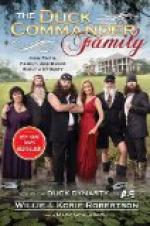The doctrine of transubstantiation was one of those which was troubling the minds of the seekers after truth.
“How can that wafer of bread and that wine in the cup become actual flesh and blood?” spoke Anthony once, with eager insistence, when in one of the readings the story of the Lord’s passion had been read from end to end.
And he began to quote words from Luther and others bearing on the subject, whilst the students hung upon his words, and listened breathless, with a mingling of admiration and fear. For was not this, indeed, heresy of a terrible kind?
Clarke listened, too, very quietly and intently, and then took up the word.
“Our blessed Lord cannot lie, nor yet deceive; and He said, ’This is my body this is my blood.’ And St. Paul rebuked the early Christians, because in partaking of the holy sacrament they did not discern the Lord’s body. And how could they discern what was not present? Nay, let us devoutly and thankfully believe and know that we do in very truth partake of the Lord’s body, but in a spiritual mystery, higher and holier than any visible miracle would be. The very essence of a sacrament is that it be spiritual and invisible—the visible symbol of the invisible reality. Real and corporate flesh and blood is sacrifice, not sacrament; but the true spiritual presence of the Lord’s body is never absent in His holy rite. Let us, in all holiness and meekness of spirit, discern the Lord’s body, and thankfully receive it. And instead of seeking words and formulas in which to express heavenly mysteries, which tongue of man can never utter, nor heart of man comprehend, let us seek for the guiding of the Spirit into all truth, that we may dwell in unity and love with all men, loving even where we see not alike, obeying in as far as we may in sincerity of heart those who are over us in the Lord, seeking the good and not the evil, and praying that the Lord Himself will quickly come to lead and guide His holy church into all the fulness of His own perfect stature.”
This inculcation of obedience, which was one of Clarke’s favourite maxims to his hearers, was by no means palatable to Dalaber, who had launched upon a crusade very contrary to all the commands of the authorities. His heart always kindled at the fervour and beauty of Clarke’s teachings; but he was more disposed to a belligerent than a submissive attitude, and in that the influence of Garret was plainly to be felt. Garret was greatly in favour of Clarke’s influence over the students—he considered that he paved the way with them, as he himself would be unable to do; but he also held that the young canon did not go far enough, and that more was wanted than he was disposed to teach. He was not in favour of too great insistence upon obedience. He thought that the world and the church had had somewhat too much of that. He was a hot advocate of the new doctrine that every man should think and judge for himself. And Dalaber’s nature was one very ready to imbibe such teaching.




